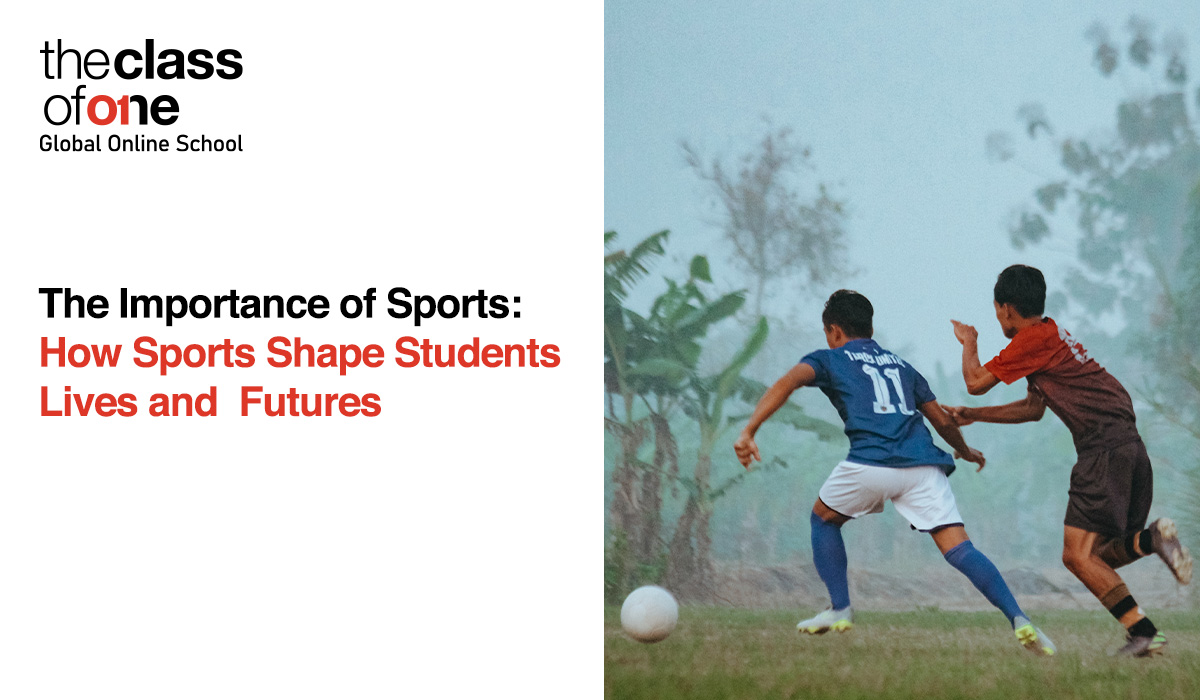The Importance of Sports: How Sports Shape Students Lives and Futures
The Importance of Sports: How Sports Shape Students Lives and Futures
By theclassofone / Aug 22, 2025
Exercising is not just something a person does; those who exercise are dedicating themselves to a healthy and complete lifestyle. The role of sports is much more than just on the playing field, where it affects our physical health, mental states, and social economy. To students, and especially to them, it serves more than a lesson in sweat – it is a life lesson, in learning to be disciplined and work with a team and learn to persevere. Even in the era of digitalisation, it is important not to forget about the importance of sports in the lives of students because it is a balanced way of educating and developing personality. Lessons gained in a game could sometimes be just as wonderful as in a textbook, and can influence the future of a student most deeply.
Why Is It Important for Students to Participate in Sports?
- Develops a balanced Personality: Sports help people develop a balanced personality through the radicalisation of important moral values such as respecting the opponent, winning through fair play, and sportsmanship.
- Stimulates Cognitive Abilities: The sport brain activity involves many situations involving quick decisions and strategic thinking that raise the memory, concentration and problem-solving in a student.
- Taught Time Management: Academics coupled with sports teach the students to prioritise and manage their time, desirable when they get to the university and in their future careers.
- Supports all-around growth: Joint engagement in sports is not quite about being physically active, but helps a student grow socially, mentally, psychologically, and emotionally.
1. How Do Sports Benefit Our Physical Health?
- Assists in weight management, and reduces health-related risks such as cardiovascular disease, diabetes and hypertension.
- Increases the strength of bones and muscles, enhances flexibility and body coordination.
- Improves the immune system, so you will be less prone to feeling ill.
- Creates a healthy mind and body, which in the case of students implies improved concentration, energy and grades.
2. What Social Skills Do Students Learn Through Sports?
Sports allow students to exercise the necessary set of social skills perfectly.
- Teamwork and Communication: The students are educated on the necessity of teamwork and the qualities of communication and courtesy to fellow members in achieving the overall goal.
- Teamwork and Collaboration: The importance of sports is taught to collaborate, share the achievement, and lift up team members in times a misfortune, making them have camaraderie towards one another.
- Conflict Resolution: Sports educate students on the way they can channel group behaviour and manage conflicts in a positive way.
- Transferable Skills: The skills acquired in the field are transferable to every area of the student's life, including in the classroom and on projects, to his or her future career.
3. How Do Sports Contribute to a Person's Mental Health?
Sports have great mental advantages and can be used to relieve stress and counter depression.
- The Reduction of Exam Stress: Endorphins are also known as mood-boosting chemicals; through physical exercise, they allow students to have a wholesome release of their school-related stresses.
- Increased Self-Confidence: Attainment of results within the sports field through scoring a point or learning a new skill enhances the self-worth and self-confidence of the student.
- Positive Attitude: Sports can help in overall attitude. As a student feels accomplished, it motivates him/her to take up challenges.
4. How Do Sports Teach Discipline and Resilience?
Discipline and resilience are the two most important life skills that are highly taught through sports.
- Discipline: The best athletes discover that discipline results in proficiency in practice, commitment and obeying rules. The discipline assists the students in time management and the setting of focus in attaining their educational objectives.
- Resilience: Sports equip you with regard to dealing with failure and defeat. The ability to pick oneself back and examine a mistake, how it occurred and how to make it even stronger in the future is something that is invaluable in the learning process and makes the students ready to shoot through the things they will encounter in the course of their adult life.
TC01: The Best Online Play School in India
The importance of sport can hardly be overemphasised. They prove to be a formidable force in the future of a child and inculcate some values and character building. Sports not only help us have a healthy body but also help in reducing stress and gaining confidence; that is, sports are imperative in our lives. The importance of sports in a student’s life cannot be understated, especially in providing unique learning opportunities in some skills that cannot be taught in a normal classroom.
In our school, we are sure that we cannot learn only from books and during the examination. Our curriculum is aimed at developing a love of learning in all its forms through physical activity. We realise the importance of sports in our lives and aim to deliver a complete education that exercises a child’s body, mind, and soul. We encourage a healthy balance between school and sports and, this way, our students become not just confident, but disciplined and resilient people who can handle any challenge that life presents to them.
The importance of sports in a student's life is immense. They learn skills like teamwork and discipline, and it boosts physical and mental health. This balanced approach to education highlights the true importance of sports.
The importance of sports in our lives is vast. It improves physical and mental health, reduces stress, and teaches essential life skills. These benefits further emphasise the importance of sports for everyone.
A child should play sports to develop a well-rounded personality. The importance of sports in students' life is seen in how they learn discipline and social skills. It also ensures physical fitness and a healthy outlet for stress.
